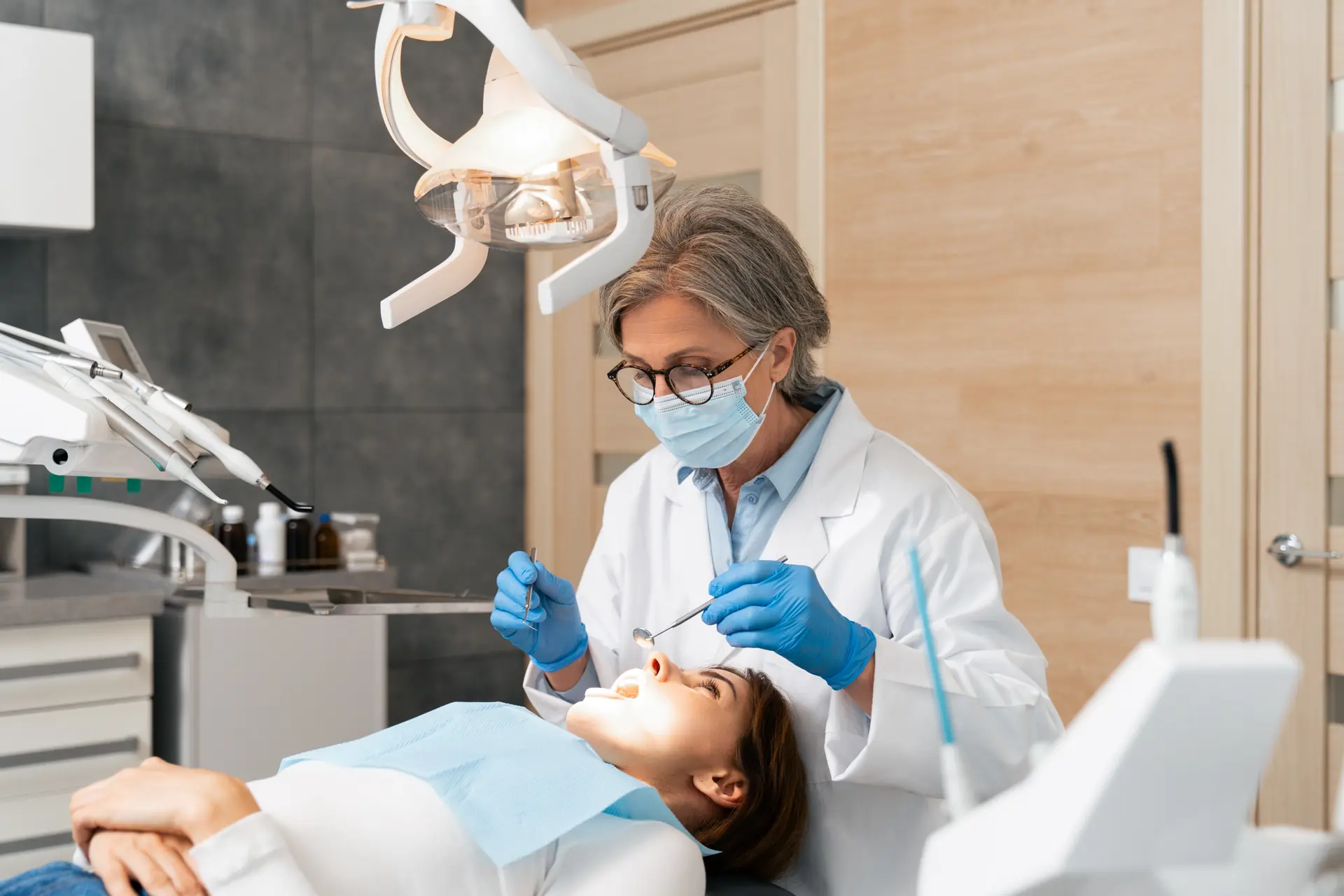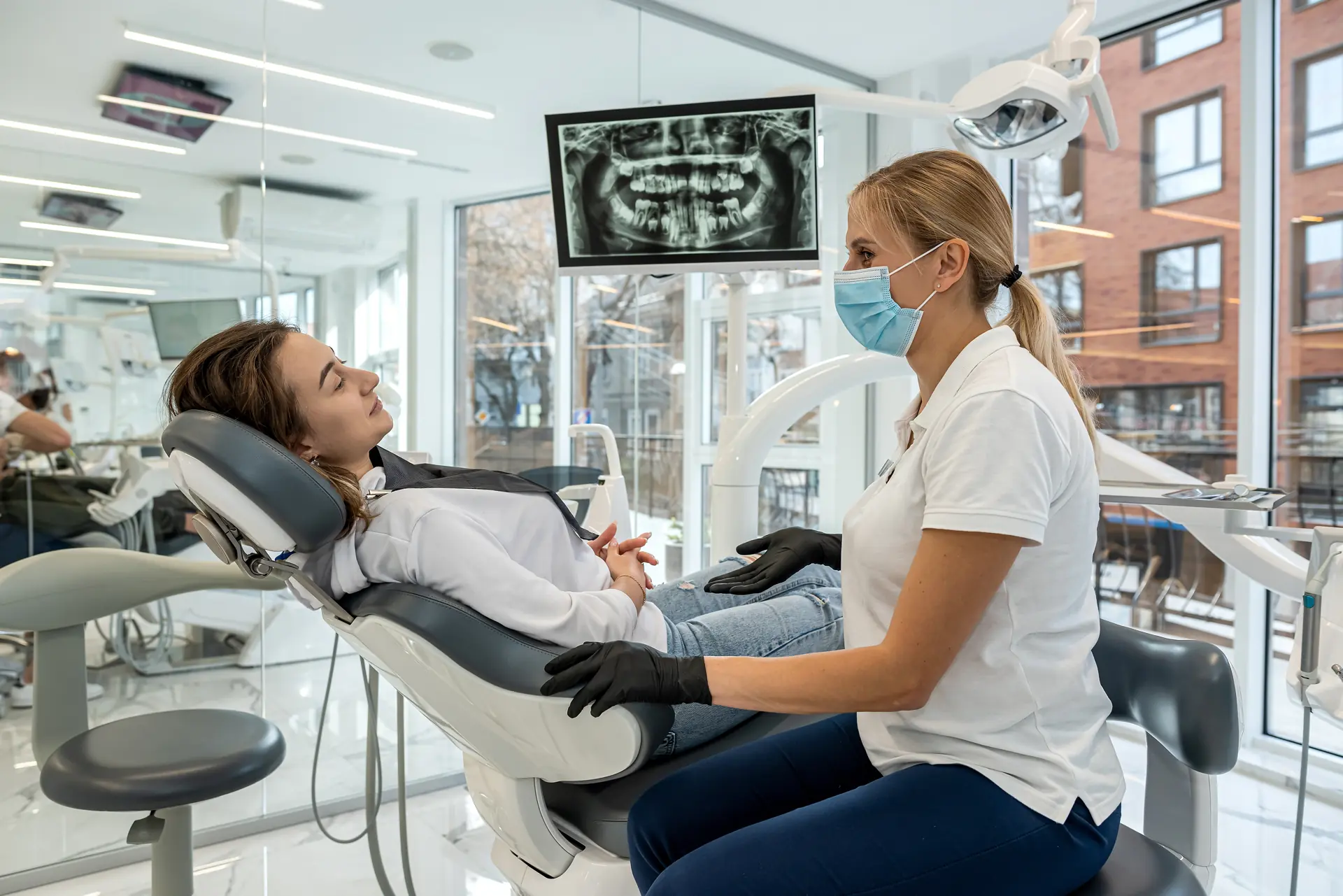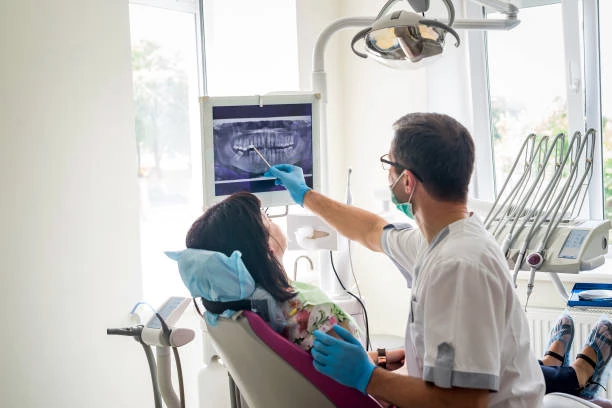Smooth, Stress-Free Extractions to Restore Relief
When a tooth is damaged, infected, or causing ongoing discomfort, removing it may be the healthiest option. At River District Smiles, we perform gentle and precise tooth extractions for patients across Rock Hill and the surrounding areas. Our team focuses on relieving pain, preventing complications, and making sure the entire experience feels calm and manageable.
With advanced imaging, modern techniques, and flexible sedation options, we help patients get back to feeling like themselves again.
When a Tooth Extraction Becomes Necessary
Keeping your natural teeth is always the ideal goal, but there are moments when removing a tooth protects your overall oral health. Many of the extraction cases we see involve deep decay that has reached the nerve, fractures below the gumline, or infections that have weakened the bone. Some patients come in with cracked molars from nighttime grinding, while others have teeth that can’t be saved after a failed filling or failed root canal.
You may need an extraction if you’re experiencing symptoms such as persistent pain, swelling around the gums, sensitivity that doesn’t improve, or pressure that makes chewing difficult. In some cases, a tooth may break suddenly during routine chewing, revealing damage that was already present beneath the surface.
By removing the compromised tooth, we prevent further infection, protect surrounding teeth, and open the door to healthier long-term options like implants or bridges.

How We Evaluate Whether Extraction is the Right Choice
Every extraction begins with a thorough exam. We use digital X-rays or 3D imaging to see the full picture of the tooth’s condition, from root structure to surrounding bone support. This technology helps us identify hidden cracks, deep infection, or bone loss that might not be visible during a standard visual exam.
During the evaluation, we explain everything we see in a clear and straightforward way. Many patients appreciate being able to view their scans while we talk through the findings.
We review your dental history, medical history, and symptoms so we can decide together whether removing the tooth is the safest and most predictable treatment. If a more conservative option is possible, we make sure you understand it before moving forward.

Types of Tooth Extractions We Perform
Our team handles both simple and more complex extraction needs:
Simple Extractions
A simple extraction is performed when the tooth is fully visible above the gumline and can be gently loosened and removed. These procedures are quick and typically require only local anesthesia.
Surgical Extractions
Some teeth are broken below the gumline, impacted, or difficult to access. These cases require a small incision or sectioning of the tooth. Surgical extractions are still routine but need a more detailed approach.
Wisdom Tooth Extractions
Wisdom teeth often cause crowding, pain, or recurring infections. Even when they aren’t painful, they may grow at an angle that threatens nearby teeth. Removing them helps prevent long-term complications.
Infected or Abscessed Tooth Extractions
When bacteria reach the root and spread through the bone, the infection can become serious. If a root canal is no longer an option, extraction prevents further spread and protects your health.
Regardless of the type of extraction required, our focus is always on keeping you comfortable, informed, and supported throughout the process.
What to Expect During Your Extraction Appointment
We understand that extractions can feel intimidating, especially if you’ve been dealing with pain for a while. Our goal is to make the process clear and predictable from the moment you sit down.
Here’s what your visit typically looks like:
- Assessment and imaging review
We confirm the diagnosis and walk you through what we found. - Sedation discussion
We help choose the most comfortable and safe option based on your anxiety level and medical history. - Local anesthesia
The area is numbed thoroughly so you don’t feel pain during the procedure. - Tooth removal
We use gentle, modern techniques designed to protect the surrounding gums and bone. Most extractions take less than a few minutes once the area is numb. - Gauze placement and aftercare instructions
We show you exactly how to care for the site at home and what to expect during the first 24 to 48 hours.
If you have concerns during any part of the process, we pause and address them. You’re never rushed, and we make sure every patient feels supported from start to finish.
Sedation and Comfort Options
Comfort looks different for every patient, which is why we offer several levels of sedation. Some patients only need local anesthesia, while others feel better with additional relaxation support.
Our sedation options include:
- Local anesthesia to numb the tooth and surrounding area.
- Nitrous oxide for patients who want a light, calming option.
- Oral sedation for moderate anxiety or longer procedures.
- IV sedation for more complex cases or individuals with significant anxiety.
We review the benefits and precautions of each method so you can choose the option that feels safest for you.
Advantages and Disadvantages of Tooth Extraction
Every treatment choice comes with benefits and considerations. We believe in helping patients make informed decisions, so here’s what to expect.
Advantages
- Pain relief. Removing a damaged or infected tooth stops ongoing discomfort.
- Stops infection from spreading. Extractions prevent bacteria from affecting nearby teeth or bone.
- Supports long-term oral health. Once the problematic tooth is removed, you can pursue healthier options like crowns, implants, or orthodontics.
- Improves comfort and function. Many patients notice better chewing and reduced pressure after extraction.
Disadvantages
- Healing time. Some soreness and swelling are normal during the first few days.
- Temporary diet changes. You’ll need to stick with softer foods initially.
- Potential need for replacement. Missing teeth can affect your bite, so restoring the space may be recommended.
- Short-term bleeding or tenderness. Minor bleeding is normal but usually resolves quickly with proper care.
Understanding both sides helps you feel confident in your treatment plan.
Aftercare and Recovery: What You Should Know
Healing typically progresses quickly when aftercare instructions are followed. Most patients feel significantly better within a few days.
Here’s what we recommend:
- Use an ice pack during the first day to reduce swelling.
- Stick to soft foods like yogurt, broth, and mashed potatoes.
- Avoid drinking through a straw to protect the blood clot.
- Keep your head elevated for the first night.
- Gently clean your teeth but avoid brushing directly over the extraction site.
- Take medications as prescribed to manage discomfort.
If swelling increases, bleeding doesn’t slow, or you have concerns at any point, our team is available to help.
Why Patients in Rock Hill Trust Our Team for Tooth Extractions
Our dentists bring years of clinical experience to every extraction, from routine removals to complex surgical cases. We take the time to understand your concerns, explain your options clearly, and recommend solutions that fit your goals.
Patients appreciate our calm and friendly approach, the way we use modern technology to improve accuracy, and our commitment to providing care that never feels rushed. Whether your extraction is planned or urgent, you’ll be treated with patience, honesty, and attention.
Schedule Your Tooth Extraction Consultation
If you’re dealing with tooth pain or think you may need an extraction, we’re here to help. Contact River District Smiles to schedule a visit and get clarity on the next steps. Our team will guide you through the process and make sure you receive the care you need.



